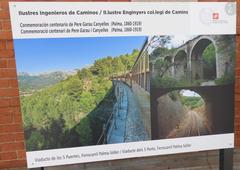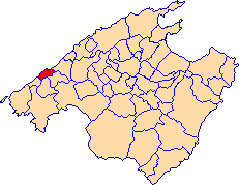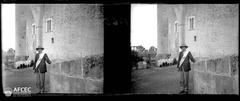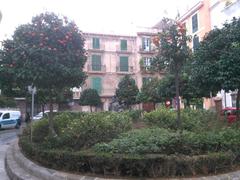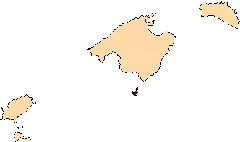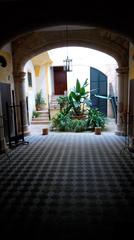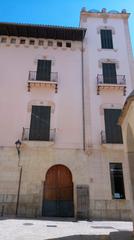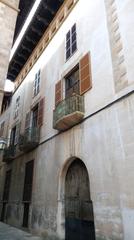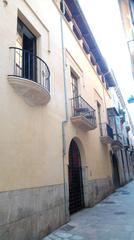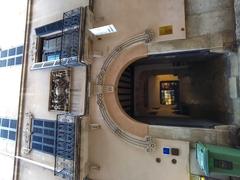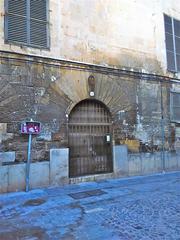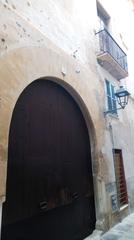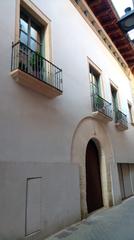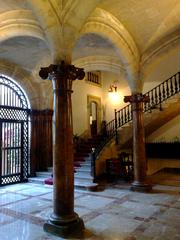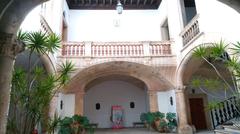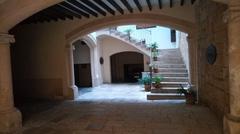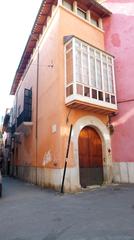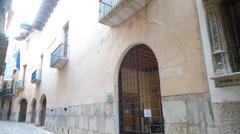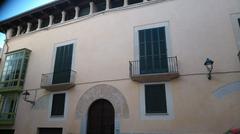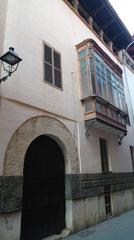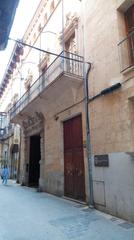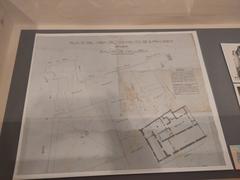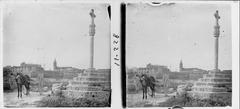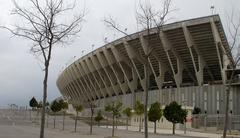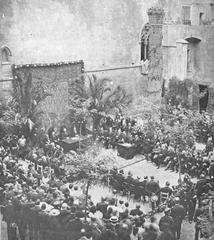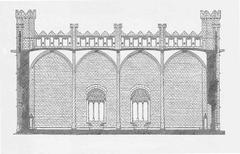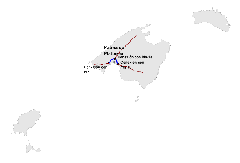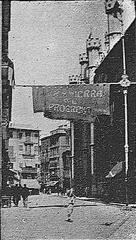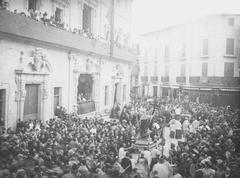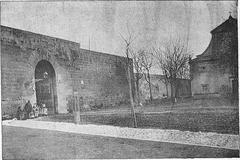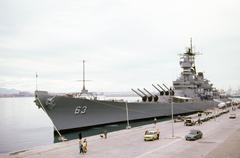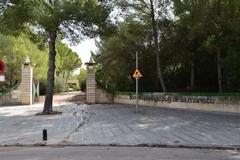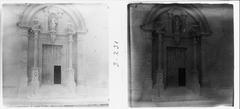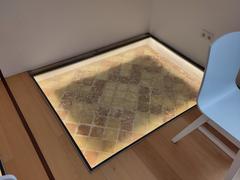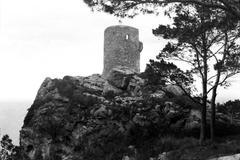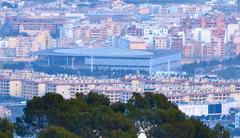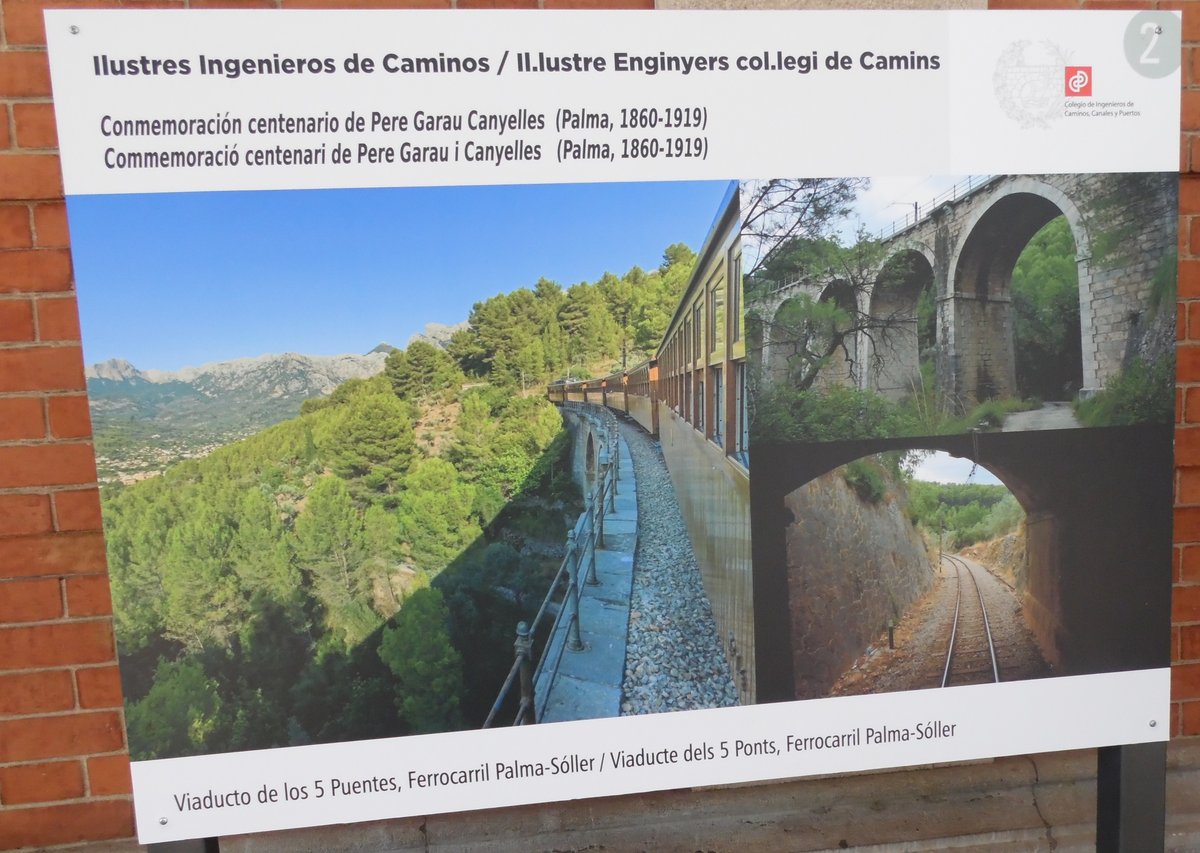
Visiting Ferrocarril de Sóller: Hours, Tickets, and Travel Tips
Date: 18/07/2024
Introduction
The Ferrocarril de Sóller, a historic narrow-gauge railway often referred to as the ‘Orange Express,’ offers visitors a unique journey through the picturesque landscapes of Mallorca, Spain. This railway, inaugurated on April 16, 1912, was initially constructed to facilitate the transportation of citrus fruits and other agricultural products from the Sóller Valley to Palma. Over the years, it has transformed into a significant cultural landmark and a beloved tourist attraction. The railway’s 27.3-kilometer stretch includes 13 tunnels, bridges, and viaducts, showcasing early 20th-century engineering prowess (Mallorca Spotlight).
In addition to its historical significance, the Ferrocarril de Sóller made substantial economic contributions by boosting local agriculture and commerce and continues to thrive as a major tourist destination today (Mallorca Daily Bulletin). Visitors can embark on a nostalgic journey in vintage wooden carriages, enjoying stunning views of the Serra de Tramuntana, a UNESCO World Heritage Site. This comprehensive guide aims to provide all the necessary information for an unforgettable visit, including ticketing details, travel tips, and nearby attractions (Ferrocarril de Sóller Official Site).
Table of Contents
- [Introduction](#introductionintroduction)
- [History of the Ferrocarril de Sóller](#history-of-the-ferrocarril-de-sóllerhistory-of-the-ferrocarril-de-sóller)
- [Early Beginnings](#early-beginningsearly-beginnings)
- [Construction and Engineering](#construction-and-engineeringconstruction-and-engineering)
- [Economic Impact](#economic-impacteconomic-impact)
- [World War II and Post-War Period](#world-war-ii-and-post-war-periodworld-war-ii-and-post-war-period)
- [Preservation and Heritage Status](#preservation-and-heritage-statuspreservation-and-heritage-status)
- [Modern Era and Tourism](#modern-era-and-tourismmodern-era-and-tourism)
- [Technological Advancements](#technological-advancementstechnological-advancements)
- [Cultural Significance](#cultural-significancecultural-significance)
- [Future Prospects](#future-prospectsfuture-prospects)
- [Visitor Information](#visitor-informationvisitor-information)
- [Ticket Prices and Opening Hours](#ticket-prices-and-opening-hoursticket-prices-and-opening-hours)
- [Travel Tips](#travel-tipstravel-tips)
- [Nearby Attractions](#nearby-attractionsnearby-attractions)
- [Accessibility](#accessibilityaccessibility)
- [Essential Visitor Tips for Ferrocarril de Sóller](#essential-visitor-tips-for-ferrocarril-de-sólleressential-visitor-tips-for-ferrocarril-de-sóller)
- [Ticketing and Pricing](#ticketing-and-pricingticketing-and-pricing)
- [Timetable and Schedule](#timetable-and-scheduletimetable-and-schedule)
- [Best Time to Visit](#best-time-to-visitbest-time-to-visit)
- [What to Bring](#what-to-bringwhat-to-bring)
- [Onboard Experience](#onboard-experienceonboard-experience)
- [Exploring Sóller](#exploring-sóllerexploring-sóller)
- [Connecting to Port de Sóller](#connecting-to-port-de-sóllerconnecting-to-port-de-sóller)
- [Safety and Etiquette](#safety-and-etiquettesafety-and-etiquette)
- [Local Insights](#local-insightslocal-insights)
- [Environmental Considerations](#environmental-considerationsenvironmental-considerations)
- [Additional Resources](#additional-resourcesadditional-resources)
- [FAQs](#faqsfaqs)
- [Conclusion](#conclusionconclusion)
- [References](#referencesreferences)
History of the Ferrocarril de Sóller
Early Beginnings
The idea for the Ferrocarril de Sóller was conceived in the late 19th century to facilitate the transportation of goods, particularly citrus fruits, from the Sóller Valley to Palma. The construction of the railway began in 1907 under the leadership of Jerónimo Estades, a prominent local businessman. It was officially inaugurated on April 16, 1912 (Mallorca Spotlight).
Construction and Engineering
Spanning approximately 27.3 kilometers, the Ferrocarril de Sóller includes 13 tunnels, with the longest being the Tunnel Major at 2,876 meters. The railway also features several impressive bridges and viaducts, including the “Cinc Ponts” viaduct (Ferrocarril de Sóller Official Site).
Economic Impact
Before its construction, the Sóller Valley was relatively isolated due to the surrounding Tramuntana mountain range. The railway provided a crucial link to Palma, facilitating the export of citrus fruits and other agricultural products, thus boosting the local economy (Mallorca Daily Bulletin).
World War II and Post-War Period
During World War II, the Ferrocarril de Sóller faced challenges such as material shortages and reduced passenger numbers. Despite these difficulties, it continued to operate. Post-war, the railway underwent modernization, including the introduction of diesel locomotives in the 1950s (Railway Gazette).
Preservation and Heritage Status
In 1985, the Spanish government declared the Ferrocarril de Sóller a “Bien de Interés Cultural” (Asset of Cultural Interest), securing funding for its preservation (Spanish Ministry of Culture).
Modern Era and Tourism
Today, the railway operates vintage wooden carriages, offering a nostalgic travel experience through the Serra de Tramuntana. Special services, such as the “Tren de l’Art,” combine a train ride with a visit to the Can Prunera Modernist Museum in Sóller (UNESCO).
Technological Advancements
Recent technological advancements include online ticket booking and digital information displays at stations, improving the overall visitor experience (Ferrocarril de Sóller Official Site).
Cultural Significance
The Ferrocarril de Sóller is a symbol of Mallorca’s rich cultural heritage, often featured in films, documentaries, and literary works. Local festivals and events frequently incorporate the railway, celebrating its historical importance (Mallorca Tourism Board).
Future Prospects
Plans are underway to further enhance the railway’s infrastructure and services, ensuring its continued relevance and attraction for future generations (Mallorca Daily Bulletin).
Visitor Information
Ticket Prices and Opening Hours
Visitors can purchase tickets both online and at the station. Prices vary depending on the type of ticket and the season. The railway operates daily with frequent departures from Palma and Sóller. For the most up-to-date information, visit the Ferrocarril de Sóller Official Site.
Travel Tips
- Arrive Early: To secure the best seats and avoid long lines, arrive at the station early, especially during peak tourist season.
- Pack Light: The vintage carriages have limited space for luggage.
- Bring a Camera: The scenic route offers numerous photo opportunities.
- Check the Weather: Ensure clear skies for the best experience.
Nearby Attractions
- Sóller Town: Wander through the charming streets, visit local markets, and enjoy historic architecture.
- Port de Sóller: A picturesque port town with beautiful beaches and waterfront restaurants.
- Serra de Tramuntana: A UNESCO World Heritage Site with excellent hiking trails and breathtaking vistas.
Accessibility
While some vintage carriages may have limitations, the railway provides assistance and facilities for passengers with reduced mobility. For detailed information, visit the Ferrocarril de Sóller Official Site.
Essential Visitor Tips for Ferrocarril de Sóller
Ticketing and Pricing
Tickets can be purchased at the station or online through the official Ferrocarril de Sóller website. As of July 2024, a round-trip ticket from Palma to Sóller costs approximately €32 for adults and €16 for children aged 3-12. Discounts are available for groups and seniors.
Timetable and Schedule
The train operates daily, with multiple departures from both Palma and Sóller. The first train typically departs from Palma at 8:00 AM, with subsequent trains running every hour until the last departure at 6:00 PM.
Best Time to Visit
The best times to visit are during the spring (April to June) and autumn (September to October) when the weather is pleasant, and the landscape is lush. Summer can be hot and crowded, while winter offers a quieter experience with fewer services.
What to Bring
Bring comfortable clothing and footwear, a hat, sunglasses, sunscreen, a camera, water, and snacks.
Onboard Experience
The train ride from Palma to Sóller, approximately one hour long, offers breathtaking views of the Serra de Tramuntana, olive groves, and citrus orchards. The train passes through several tunnels and over impressive viaducts.
Exploring Sóller
Explore the charming town known for its Art Nouveau architecture, bustling market square, and the beautiful Church of Sant Bartomeu. Don’t miss the Can Prunera Museum of Modernism.
Connecting to Port de Sóller
Take the historic tram from Sóller to Port de Sóller. The tram ride takes about 30 minutes and costs around €7 one way. Port de Sóller offers a picturesque harbor, sandy beaches, and various dining options.
Safety and Etiquette
Adhere to safety guidelines, keep personal belongings secure, and be mindful of the train’s movement. Maintain a low noise level and avoid obstructing views while taking photos.
Local Insights
Engage with locals to enhance your travel experience. Learning basic Spanish phrases can help build rapport.
Environmental Considerations
Support sustainable tourism practices by minimizing waste, using reusable water bottles, and supporting local businesses.
Additional Resources
For more information, visit:
FAQs
What are the visiting hours for Ferrocarril de Sóller? The train operates daily from 8:00 AM to 6:00 PM.
How can I buy tickets for Ferrocarril de Sóller? Tickets can be purchased at the station or online through the official website.
Are there special events or guided tours available? Yes, check the official website for information on special events and guided tours.
Conclusion
In summary, the Ferrocarril de Sóller stands as a testament to the ingenuity and vision of its founders, offering a unique blend of historical charm and modern-day relevance. Its rich history, cultural significance, and scenic route make it a must-visit attraction in Palma de Mallorca. For more detailed information, visit the official Ferrocarril de Sóller website and other reliable sources (UNESCO).
References
- Mallorca Spotlight (2023). Exploring the Ferrocarril de Sóller
- Ferrocarril de Sóller Official Site (2023). History and Travel Tips
- Mallorca Daily Bulletin (2023). Economic Impact and Modern Era
- UNESCO (2023). Serra de Tramuntana World Heritage Site
- Can Prunera Museum of Modernism (2023). Exploring Sóller
